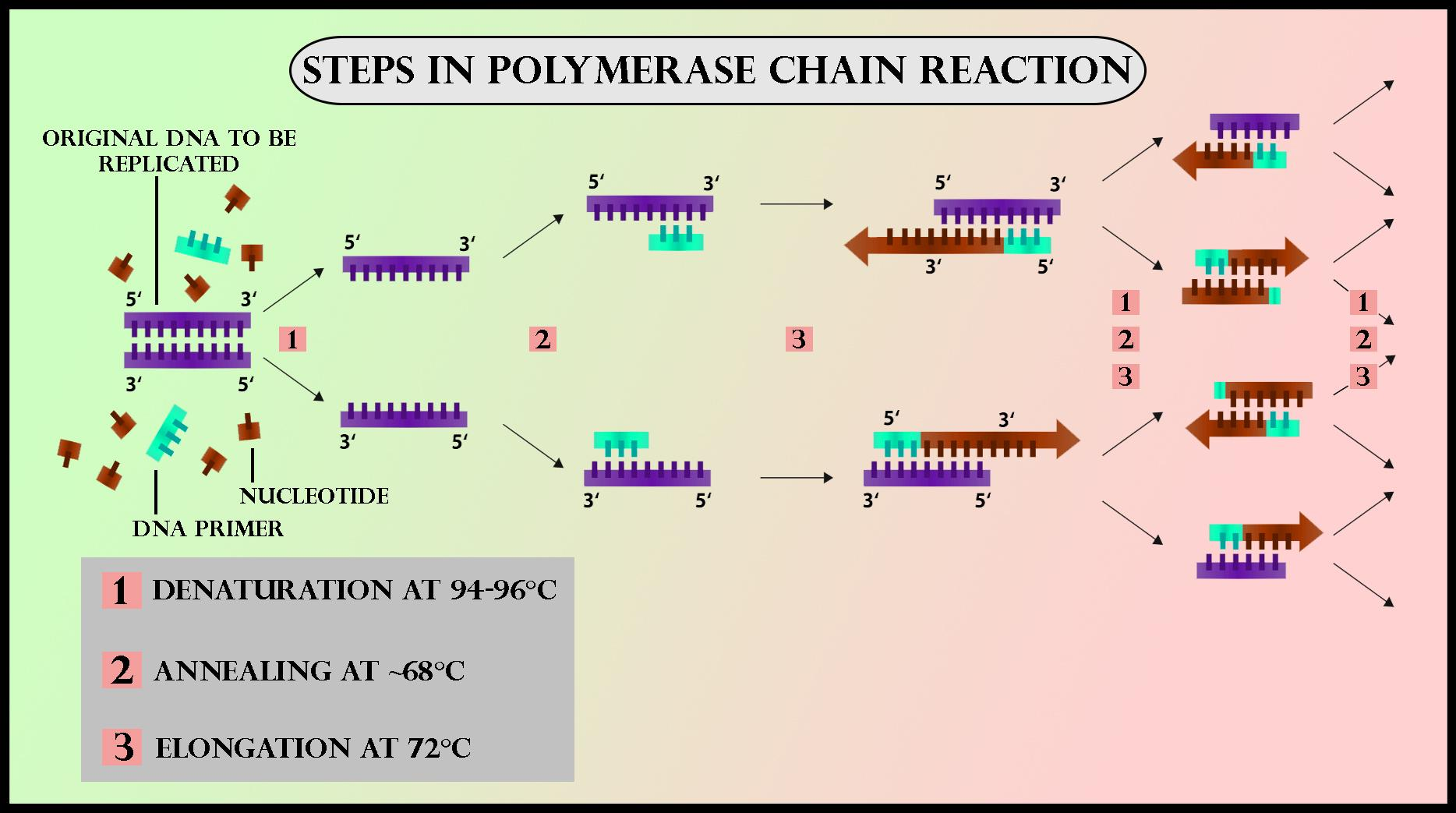
PCR or polymerase chain reaction was discovered by
(a) Jeffreys
(b) Nakamura
(c) Karry Mullis
(d) Lander
Answer
567k+ views
Hint: He has won a Nobel prize in chemistry in 1993. PCR stands for a polymerase chain reaction. PCR helps in the amplification of DNA fragments to exponential levels. It is the method that is used for the process of genetic fingerprinting.
Complete answer:
The polymerase chain reaction is a process by which the DNA, altered for human use, can be multiplied to many magnitudes within less time. It helps in copying the data of DNA and makes a million clones of that DNA in less time. It is a method used in labs to multiply the strands of DNA. with the help of DNA primer and DNA polymerase help in copying the information of the strand over and over again.
Additional Information:
1. It forms the basic step in the process of genetic testing.
2. Majority of PCR techniques rely on thermal cycling
3. A special type of polymerase is used which is thermally stable to high temperatures, it is Taq polymerase
4. It includes 3 steps denaturation, annealing, and extension
5. All the 3 above mentioned steps have different temperatures and different functions
So, the correct answer is, Karry Mullis.

Note: DNA primase and ori sequence(origin of replication) are not used in a polymerase chain reaction. PCR is also known as “DNA replication in vitro”.
The principle of PCR is to heat the double-stranded DNA molecule at very high-temperature values. PCR has various applications, such as, detection of pathogens, diagnosis of specific mutations, DNA fingerprinting, pre-birth knowledge of any genetic diseases, and in paleontology to copy DNA from mummified or preserved bodies of human beings.
Complete answer:
The polymerase chain reaction is a process by which the DNA, altered for human use, can be multiplied to many magnitudes within less time. It helps in copying the data of DNA and makes a million clones of that DNA in less time. It is a method used in labs to multiply the strands of DNA. with the help of DNA primer and DNA polymerase help in copying the information of the strand over and over again.
Additional Information:
1. It forms the basic step in the process of genetic testing.
2. Majority of PCR techniques rely on thermal cycling
3. A special type of polymerase is used which is thermally stable to high temperatures, it is Taq polymerase
4. It includes 3 steps denaturation, annealing, and extension
5. All the 3 above mentioned steps have different temperatures and different functions
So, the correct answer is, Karry Mullis.

Note: DNA primase and ori sequence(origin of replication) are not used in a polymerase chain reaction. PCR is also known as “DNA replication in vitro”.
The principle of PCR is to heat the double-stranded DNA molecule at very high-temperature values. PCR has various applications, such as, detection of pathogens, diagnosis of specific mutations, DNA fingerprinting, pre-birth knowledge of any genetic diseases, and in paleontology to copy DNA from mummified or preserved bodies of human beings.
Recently Updated Pages
Master Class 12 Economics: Engaging Questions & Answers for Success

Master Class 12 Physics: Engaging Questions & Answers for Success

Master Class 12 English: Engaging Questions & Answers for Success

Master Class 12 Social Science: Engaging Questions & Answers for Success

Master Class 12 Maths: Engaging Questions & Answers for Success

Master Class 12 Business Studies: Engaging Questions & Answers for Success

Trending doubts
Which are the Top 10 Largest Countries of the World?

What are the major means of transport Explain each class 12 social science CBSE

Draw a labelled sketch of the human eye class 12 physics CBSE

Differentiate between insitu conservation and exsitu class 12 biology CBSE

Draw a neat and well labeled diagram of TS of ovary class 12 biology CBSE

Give 10 examples of unisexual and bisexual flowers




